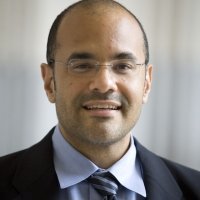Mexico Security Review 2016: Assessing the Outlook for the Rule of Law
Mexico faced major security challenges in 2015. Homicides ticked upward for the first time since 2011, and Joaquín "El Chapo" Guzmán's escape from a maximum-security prison was a major embarrassment. An OAS-linked group of independent experts examined the disappearance of 43 students in Guerrero and found major discrepancies with the official version. 2016 has started off with good news for the government with the recapture of “El Chapo,” and this year is also the deadline for Mexico to complete the transition to an adversarial justice system.
The Wilson Center's Mexico Institute was pleased to hold its third annual Mexican security review. The forum provided a careful examination of Mexico’s security landscape in 2015 and 2016. What does the recapture of El Chapo mean for Mexico’s security in 2016? How will the Peña Nieto administration continue to build on his recapture, and what will the new justice system mean for fighting crime and criminal networks?
The program featured presentations from leading Mexican and U.S. security analysts and researchers, and representatives from the Mexican government. The presentations can be found below under "Event Documents."
Viridiana Rios' paper "The Impact of Crime and Violence on Economic Sector Diversity" can be downloaded here.
Welcome
Duncan Wood
Director, Mexico Institute, Wilson Center
Ambassador Miguel E. Basáñez
Ambassador of Mexico to the U.S.
Panel I: Overview of 2015 and Trends in 2016
Alejandro Hope
Editor, Security and Justice, El Daily Post
David Shirk
Professor, University of San Diego
Director, Justice in Mexico Project
Global Fellow, Wilson Center
Viridiana Rios
Fellow, Wilson Center
Enrique Betancourt
Director, Violence and Crime Prevention Initiative, Chemonics International
Eric L. Olson
Associate Director, Latin American Program &
Senior Advisor to the Mexico Institute, Wilson Center
Moderator:
Duncan Wood
Director, Mexico Institute, Wilson Center
Panel II: Reforming the Criminal Justice System
Keynote: Mtro. Rommel Moreno Manjarrez
Head of the Special Department for the Implementation of the Adversarial Criminal Justice System,
Office of the Attorney General (PGR)
Layda Negrete
Coordinator, Quality of Justice Project, México Evalúa
Octavio Rodriguez
Program Coordinator, Justice in Mexico Project, University of San Diego
Matthew Ingram
Assistant Professor, Department of Political Science, University at Albany, SUNY
Moderator:
Eric L. Olson
Associate Director, Latin American Program &
Senior Advisor to the Mexico Institute, Wilson Center
Speakers



Professor and Graduate Director, Department of Political Science and International Relations, University of San Diego; Director, "Justice in Mexico" Project

Columnist, El Pais; Instructor of US-Mexico politics at Harvard Summer School

Director of Policy and Strategic Initiatives, Seattle International Foundation
Hosted By

Mexico Institute
The Mexico Institute seeks to improve understanding, communication, and cooperation between Mexico and the United States by promoting original research, encouraging public discussion, and proposing policy options for enhancing the bilateral relationship. A binational Advisory Board, chaired by Luis Téllez and Earl Anthony Wayne, oversees the work of the Mexico Institute. Read more
